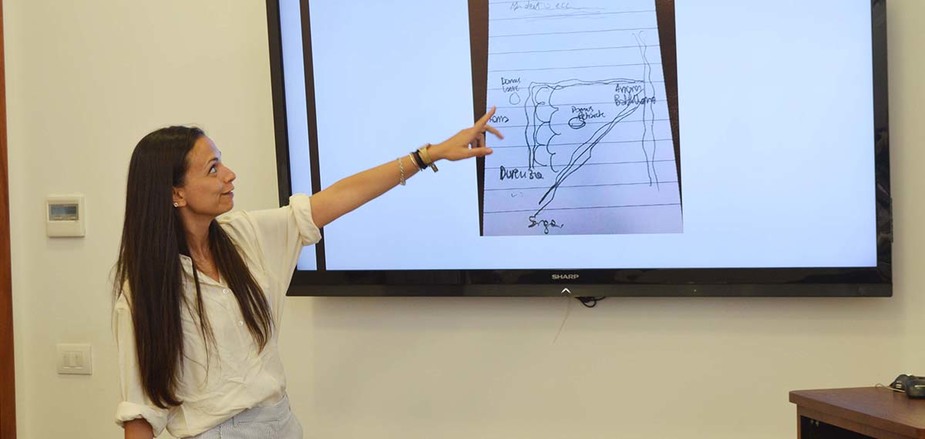Rome Seminar brings together graduate students to tap into Roman sources

Rome during the summer time can be confusing. The heat can be suffocating and roads are always full of tourists following the same routes. At the end of the day, one may feel exhausted. But at the same time, it is even more charming. It’s a time where Romans enjoy their city more than ever, strolling around and looking for a secret new spot to drink a nice glass of wine, or having a picnic inside one of the marvelous Villas. The cicadas with their distinctive chirps may be more like a soundtrack, making it melancholic and fascinating at the same time. Not to mention, the summer sunsets are timeless.
At this time of the year since 2011, the Rome Global Gateway hosts the annual Rome Seminar. This year's seminar was supported by the Gladys Krieble Delmas Foundation, Office of Reseach, Italian Studies, and the College of Arts and Letters.
Ten graduate students from the University of Stanford, University of Chicago, University of Notre Dame, Princeton University, Northwestern University and University of Toronto, were selected from more than fifty applications. Coming to the Eternal City, they had the exceptional opportunity to attend a three-week seminar. They gained a familiarity with a number of the major archives and libraries in the city, a contact at each of the locations that can be used to facilitate their future research, a concrete plan for advancing their own work, some sense of the creative ways in which senior scholars have used Roman archival finds in their own work, and an affinity for this kind of research.
Maria Sole Costanzo is a second-year Ph.D. student in Italian Literature at the University of Notre Dame. After obtaining her MA in Modern Philology at Università Cattolica of Milan, she is now focusing on the earlier Italian Humanism. Her dissertation “Leon Battista Alberti and the Languages of the Quattrocento,” supervised by Professor Theodore J. Cachey, seeks to reassess the place of language of Alberti’s work through the lens of his linguistic theory, with the aid of manuscript studies and archival research. Costanzo is one of the selected graduate students who came to Rome to attend the seminar and work together with many peers with similar profiles.
The Rome Seminar literally opens the doors to many unique collections and archives, such as the Biblioteca Apostolica Vaticana, Biblioteca Nazionale Centrale di Roma, Biblioteca Accademia dei Lincei e Corsiniana, Archivio di Stato, Biblioteca Angelica, and Biblioteca Casanatense. It also provides the exceptional opportunity to learn how scholars use archival materials by featuring presentations by scholars such as Ingrid Rowland, Marius Hauknes and Patrizia Cavazzini.
“The human factor is one of the key components of this seminar,” Costanzo says. “Getting to know exceptional scholars and people who can guide you through your research, understanding your difficulties and needs, as well as providing you with the right advice at the right time is invaluable.”
The special group also had an exclusive visit from Dianne Harris, a senior program officer at the Andrew W. Mellon Foundation, as well as a historian of landscapes and architecture. She spoke about the importance of archives in her own work and the ways in which the Mellon Foundation supports this kind of research.
“The scholarly work is mainly solitary, while in this case, we had the chance to collaborate with people with same interests and approaches as ours, and to help each other,” comments Costanzo. “The collaboration between us has also created new possible opportunities for the future.”